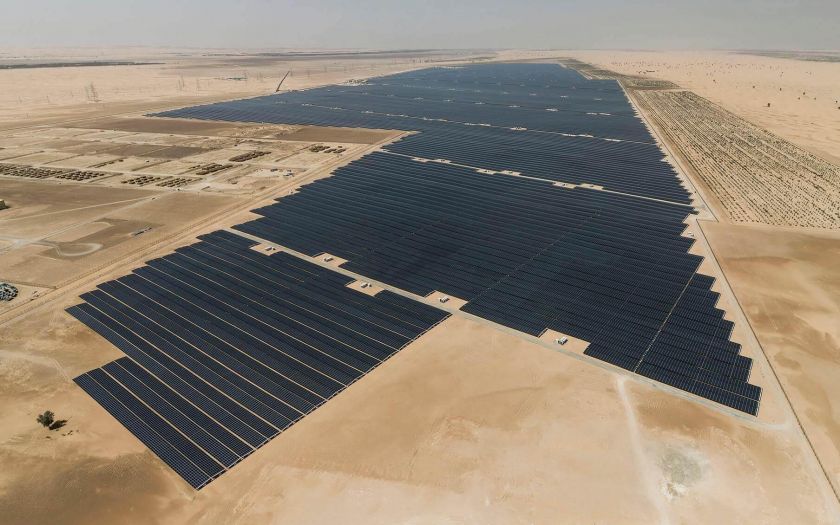Middle East and Africa solar energy mega-projects demand quality.
The next decade will see massive solar energy projects across the Middle East and Africa drive even lower tariffs, and hence the efficiency and durability of equipment - including interconnecting cabling, become even more important.
The world’s single largest solar project - Noor, Abu Dhabi, became operational in July 2019. With a capacity of 1,177MW through 3.2 million solar panels installed over 8 square km, and at the time the world’s most competitive or lowest tariff.
As we enter the next decade ambitions for renewable energy in the Middle East, and globally, are almost limitless. Blessed with strong sunlight all year round, there are plans to expand and build the largest solar farms on the planet, as well as the largest wind farms in the largest expanses of desert in the world.
UAE vision 2050 will see 50% of the country’s energy needs being met by renewable sources, while the Dubai Clean Energy Strategy plans to have renewable sources generating 7% of its total energy output by 2020, growing to 25% by 2030, and 75% by 2050. Meanwhile Saudi Arabia’s vision 2030 sets an ambitious initial target of generating 9.5 gigawatts of renewable energy annually.
These goals are mirrored across the GCC region, alongside ongoing investments across Africa that include Burkina Faso, Egypt, Ethiopia, Morocco, South Africa, Uganda, Kenya and Nigeria are driving commitment to build many new, bigger, higher output and more efficient solar energy farms.
Whether at the planning, design, approval, build or early operation phase it is crucial that the combined technology – hardware and software, delivers reliably over the long term, and as expected.
With solar installations often found in extreme conditions - PV cable designed for wiring the DC sections of interconnecting power supplies of solar panel arrays must be able to withstand both high external temperature and humidity, along with the voltage and current temperatures within.
The use of photovoltaic cables manufactured to the latest European standard EN 50618, established in 2014 or the more recent and flexible IEC 62930 International standard, ensure they are able to withstand such conditions, and can mean an expected life up 25 years when installed correctly. These EN and IEC standards supersede previous examples such as TUV PV1-F.
BASEC independently tests and certifies all solar photo voltaic cable to the EN or IEC standards, working with manufacturers and project specifiers to ensure the product approvals meet specification quality standards. Having invested in a team based in Dubai who understand the market, BASEC offers a professional, technical cable knowledge and expertise in solar so naturally is the perfect partner to ensure your success.


